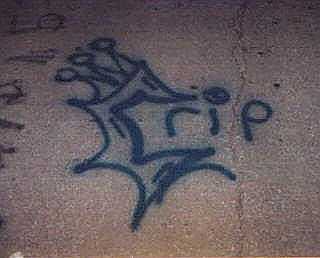
Mission Accomplished.
An ambiguous phrase that should be not only be met with a passive skepticism but an aggressive negativity. What was the mission. Have the last ten* years been about one man, one spirit, the singular manifestation of all our angst. The War on Terror is an equally as ambiguous term. A war against Terror, radicalism, against all negativity, and Evil inherent in our dualistic world. Usāmah bin Muḥammad bin ʿAwaḍ bin Lādin was the first target of this undeclared war. As the alleged leader of the attacks on the World Trade Center Usama became the "face" of the War on Terror. A picture supplanted in the masses to give the ambiguous "War on Terror" an appearance, to appease our insatiable desire to see our enemy, to know their presence, physical features, to ensure that we are never caught off guard again. It is part of our obsession towards the end, towards finality. An incessant desire to embalm the specter of terror as to make sure that it will never return to seek vengeance. However the Enlightened mind was delayed in its pursuit of that ghastly figure, the spirit that haunted The War on Terror, and the American national conscience. Bin Laden remained elusive and slipped further and further into the void of mountainous tribal lands. Bin Laden's immanent spirit gradually disappeared and left our immediate ability to grasp, capture, and manage the uncertain principle of Evil that lay inside its ghoulish composition; America began to feel haunted.
The paranormal shift undertaken by the spirit of Usama bin Laden can be witnessed by the change in media coverage or interpretation of the event of terror. Our information outlets were thrown into uncertainty and speculations began to surface at an increasing rate and in contradictory fashion. How many times did we hear "We know where he is", "He is dead", or a number of rumors to explain the mysterious disappearance of our not so friendly ghost. Our response to our curse was characteristic of the way we handle most challenges. We disavow the issue in a predictable stage of denial in wake of our failure and produced innumerable reports and speculations that attempted to reanimate the thrill and feeling of certainty that America once felt about its neighborhood spirit. Attempting to pacify our fears we told ourselves that we still held the advantage convincing ourselves of our impervious nature. As our nation coddled its neurosis in simulacra Bin Laden's phantom figure hovered above subtly infiltrating our thoughts by remaining indifferent to our desperate need to escape the uncertainty, his reluctance to relinquish the anthropomorphic grip that he held over the Western powers and their ability to resort to their familiar, convenient, and privileged tactics. Veni Vidi Vici. "I came, I (over)saw, I conquered".
We had been haunted for ten years, that is until the "Mission Accomplished". The phantom no longer resided in the blind spot of America's dominance, hidden in the depths of America's Shadow. His ghastly nature was now property of the United States government and with this beautiful acquisition uncertainty was possessed in its physical manifestation, and it came in the form of a corpse. Again his spirit becomes immanent in the most natural sense. His death brings about a renewal of certainty in Western consciousness. We will always know and be able to predict our ghost's actions, thoughts, and behaviors and never again will he be able to advance against our weakness in the face of negativity in the face of chaos.
However there is an intriguing turn our story takes after the culmination of its destiny. Do we feel relinquished from our hex? Relieved from living under the shadow of Terror? As the debacle of an illegal assassination unravels we come to a gripping realization - now that we have retrieved the spirit and consumed its energy in a symbolic sacrifice we feel as though the sacrifice was sufficient. Time continuing in its victorious and fatal strategy over the human experience began to corrode the meaning of Bin Laden's spirit. The event of his demise took place almost as a whisper and then most predictably was amplified by all levels and channels of media. Then in the midst of our celebration the inevitable talk began. What significance does this have now? The prevailing consensus it seems is there is one less terrorist in the world. A net decrease of evil that pollutes our atmosphere of thought, politics, and culture. As though trying to avoid drastic climate change we solute every effort no matter how pathetic in nature (US has to kill a man to make themselves feel better) to cleanse our consciousness of all inhibition, contradiction, and anomaly. Mission Accomplished spurred an orgy of self-confirmation, patting ourselves on the back, reassuring ourselves that we are still the superior people, an advanced post- industrial nation that holds the world(and all of its inhabitance) in the palm of its divine hand. This childish and spoiled response characteristic of the liberal notion of entitlement revealed the general inferiority of the United States in the face of a primitive opponent. An enemy that should have been easily defeated under scientific calculation. Bin Laden haunted this truth and contradicted its validity unraveling the regime by removing the ground upon which it was established.










